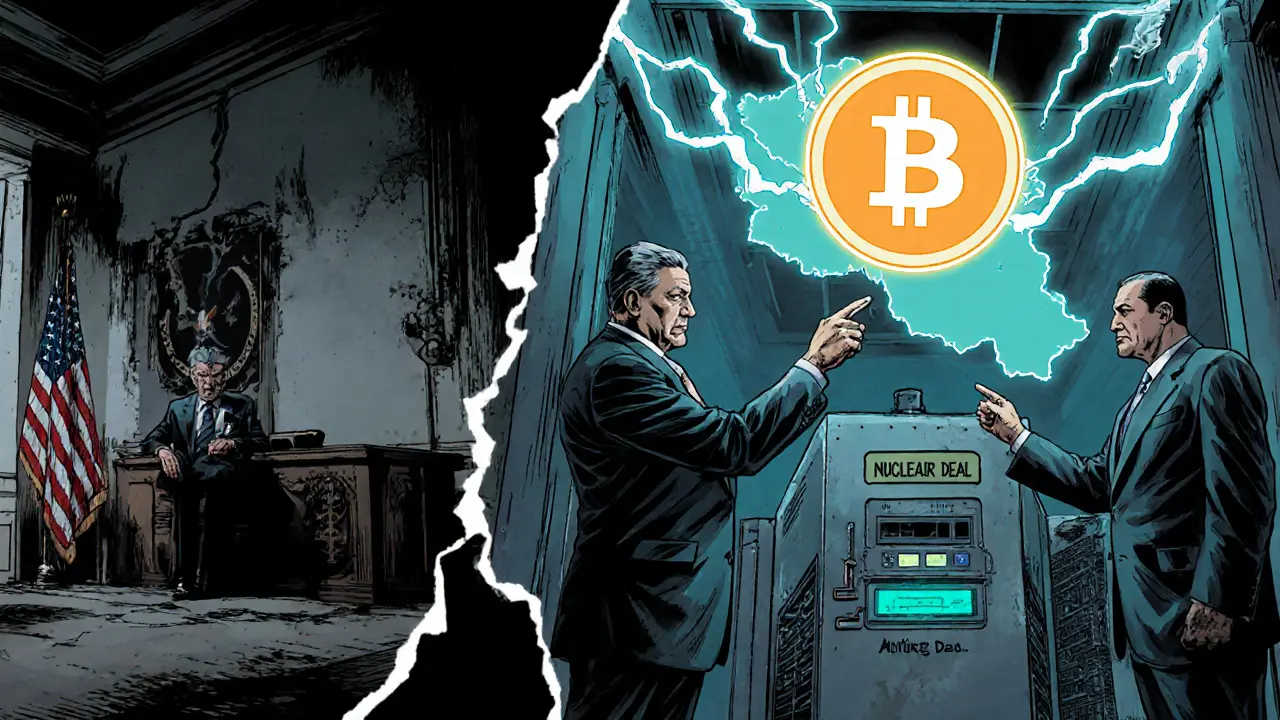How Iran Uses Bitcoin Mining to Bypass Sanctions
Iran turns cheap electricity into Bitcoin profits to dodge sanctions, using state subsidies, IRGC support, and global crypto networks for foreign‑currency revenue.
When working with IRGC, the Islamic Revolutionary Guard Corps, a powerful Iranian military and political organization that also shapes Iran’s cryptocurrency policies. Also known as Iranian Revolutionary Guard Corps, it influences the way crypto firms handle cross‑border transactions, enforces sanctions, government measures that restrict trade with designated entities and drives crypto compliance, the set of rules and reporting standards that firms must follow to stay legal. The IRGC also works closely with Iran’s financial oversight bodies, meaning financial reporting requirements often mirror the guard’s security priorities. In short, IRGC + sanctions = tighter controls, and crypto compliance + reporting = a way to navigate those controls. This triple relationship sets the stage for everything that follows.
Anyone dealing with crypto in or near Iran quickly learns that the guard’s decisions ripple through exchange listings, DeFi protocols, and even NFT projects. For example, when the IRGC tightens sanctions on a certain token, you’ll see that token disappear from major exchanges and liquidity pools within days. That shift forces exchange regulation, rules governing how platforms list, trade, and secure digital assets teams to update their compliance engines, often adding new AML/KYC checks to satisfy guard‑driven reporting standards. Similarly, blockchain voting initiatives that aim to improve election transparency must account for IRGC‑imposed data‑privacy limits, linking blockchain regulation directly to the guard’s broader security goals. Understanding these links helps you anticipate market moves, avoid accidental breaches, and design products that stay ahead of policy shifts.
Below you’ll find a curated mix of deep‑dive guides, risk analyses, and step‑by‑step tutorials that unpack how the IRGC’s policy landscape shapes crypto today. Whether you’re hunting airdrop opportunities, comparing exchange security, or learning how to file FBAR reports for foreign crypto holdings, the articles ahead break down the practical implications of IRGC‑driven rules. Armed with this context, you can spot compliance pitfalls early, align your strategies with the latest sanctions, and make smarter decisions across the crypto ecosystem.

Iran turns cheap electricity into Bitcoin profits to dodge sanctions, using state subsidies, IRGC support, and global crypto networks for foreign‑currency revenue.